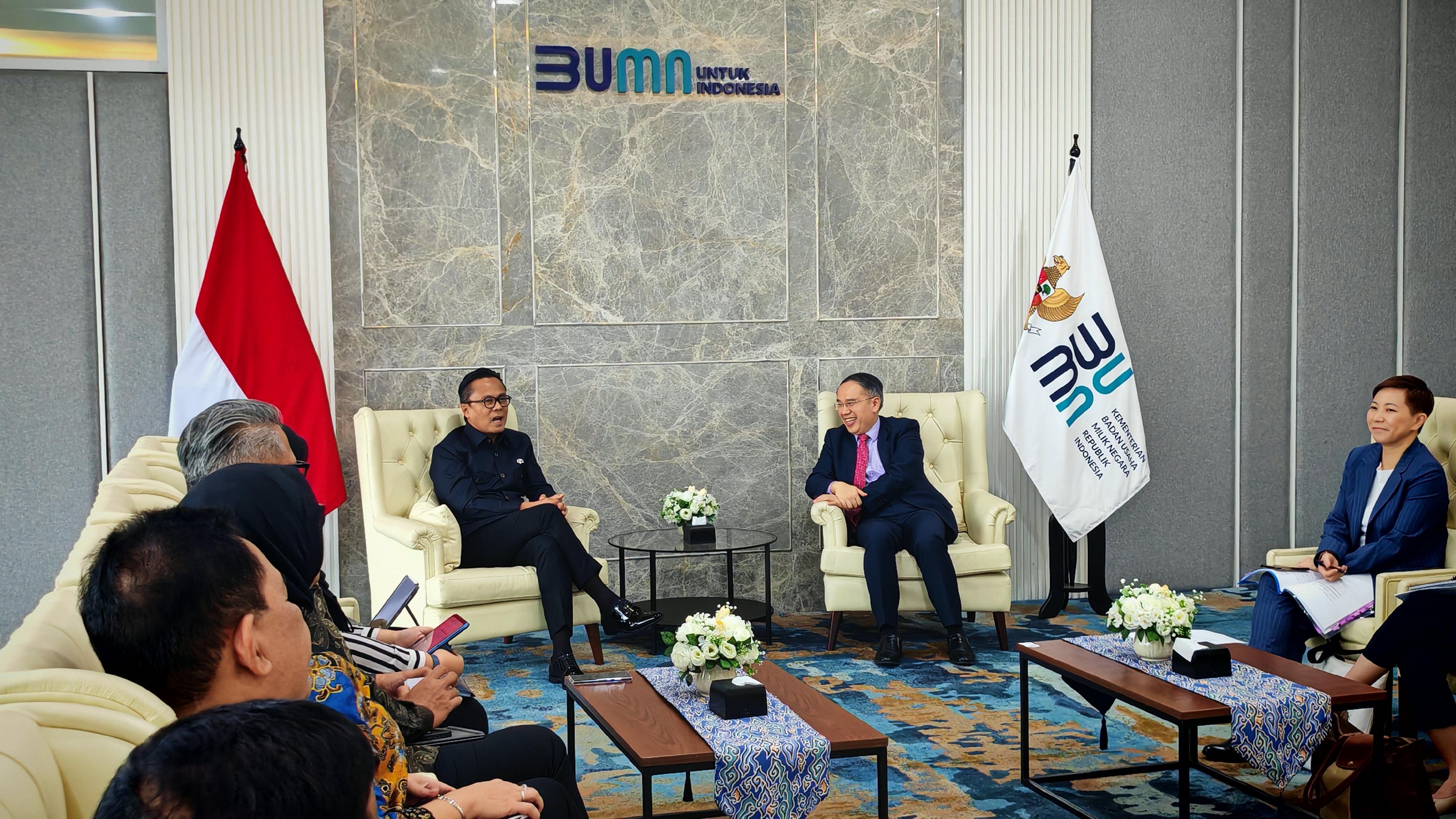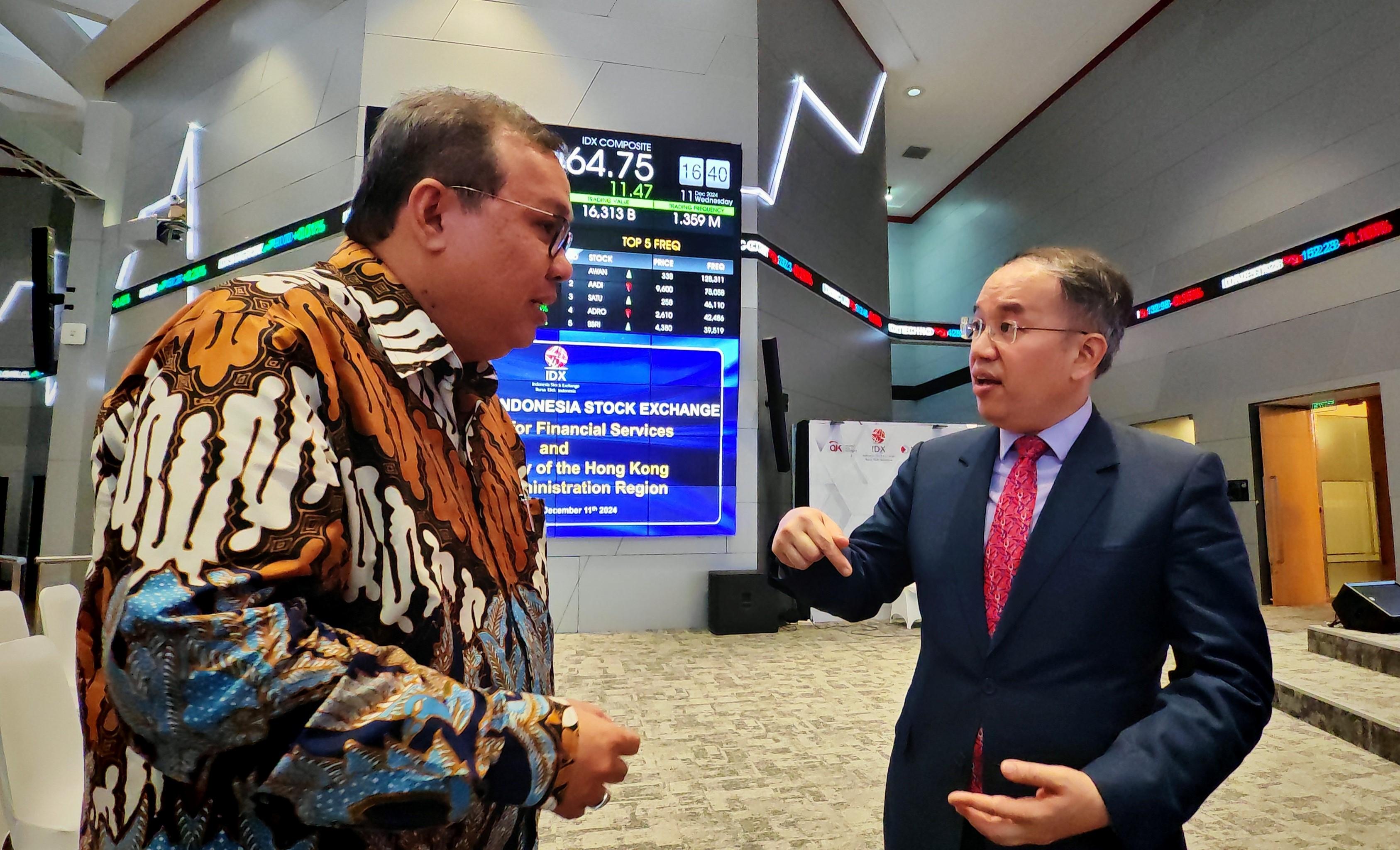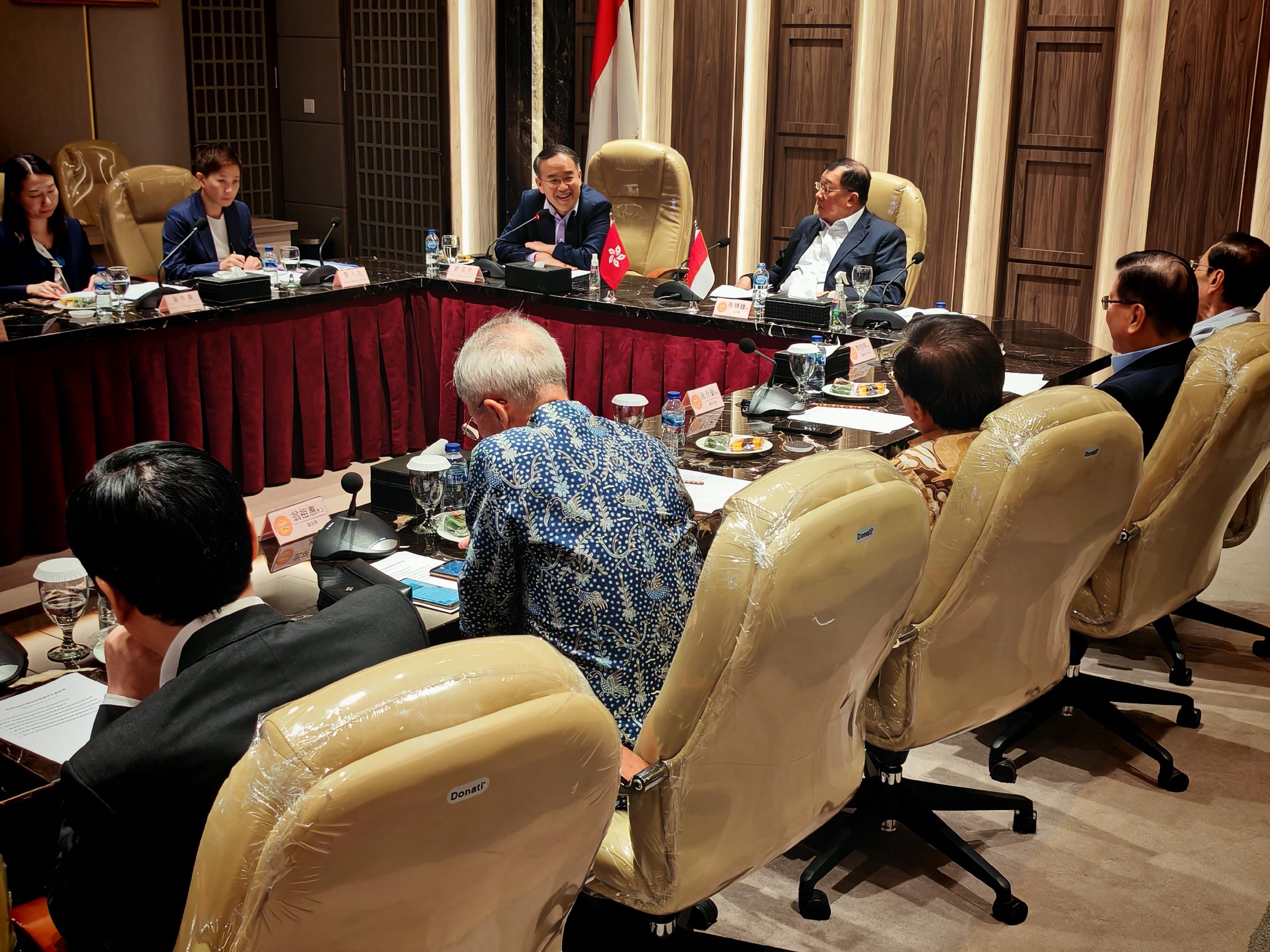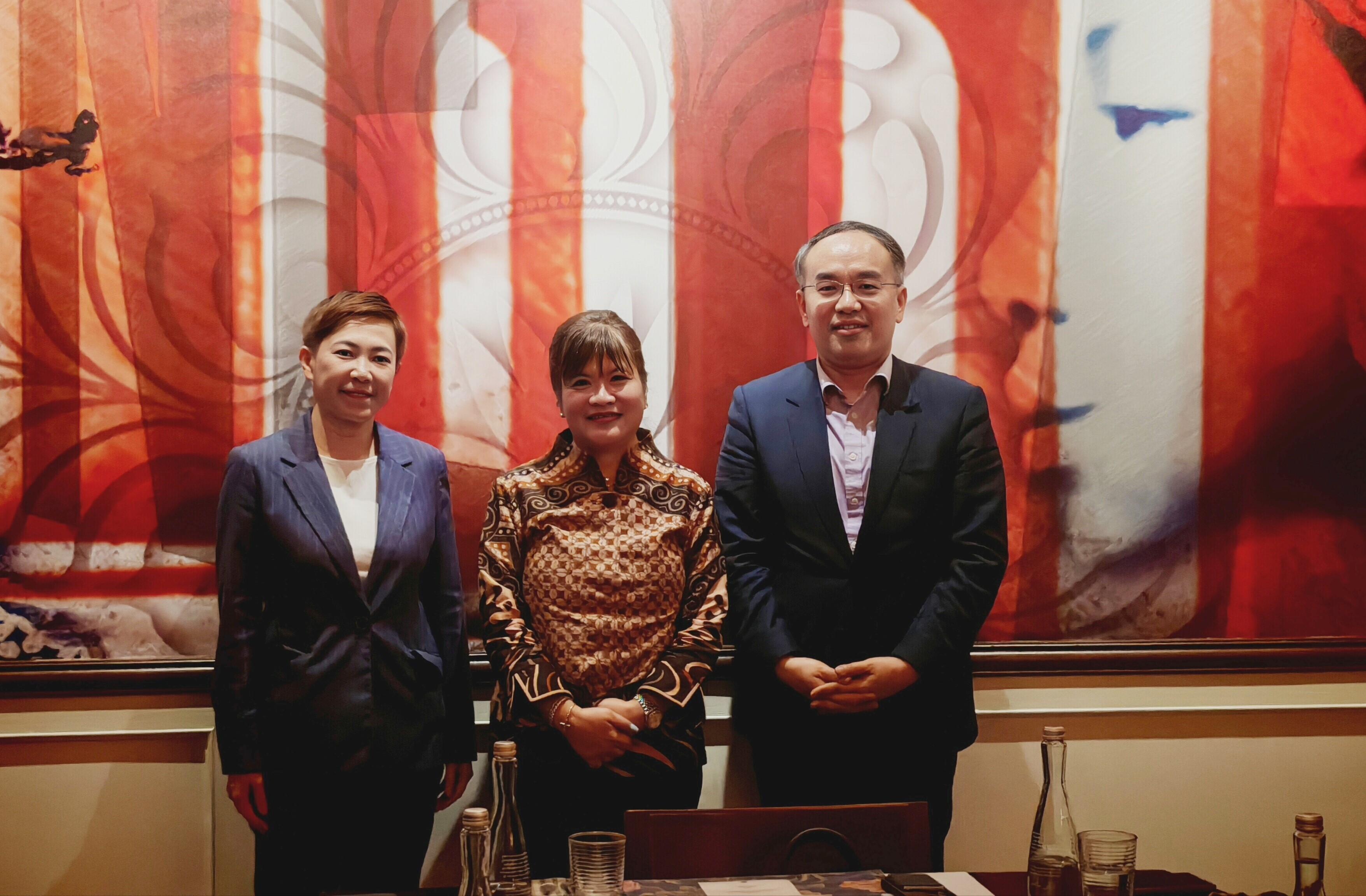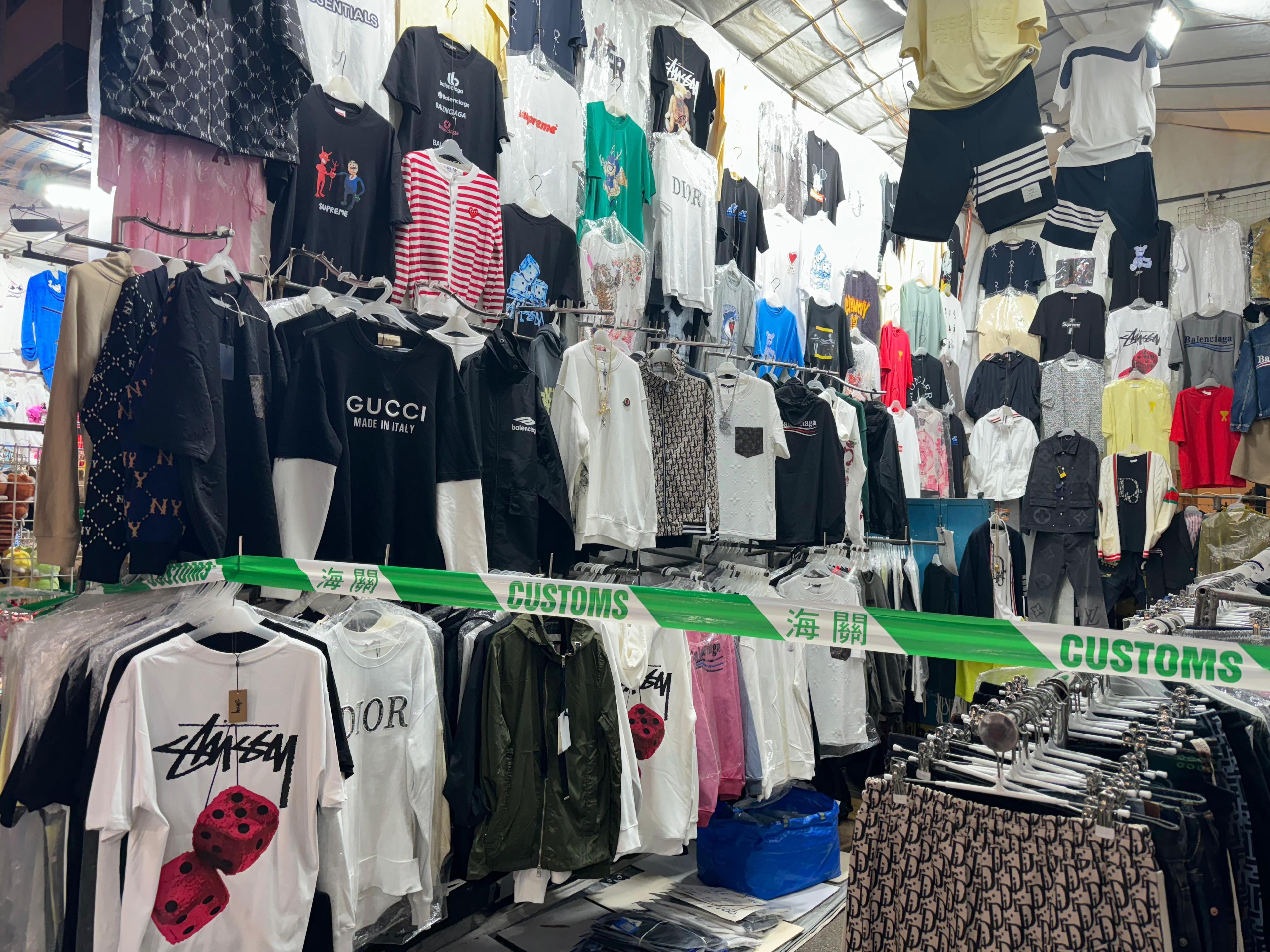LC: Speech by CS for proposed resolutions moved under Legal Aid Ordinance and Criminal Procedure Ordinance
Following is the speech (translated from Chinese) by the Chief Secretary for Administration, Mr Chan Kwok-ki, for the proposed resolutions under the Legal Aid Ordinance (LAO) and the Criminal Procedure Ordinance in the Legislative Council (LegCo) today (December 11):
Mr President,
I move that my first motion, as printed on the Agenda, be passed to adjust the financial eligibility limits (FELs) for legal aid applicants. Later, I will sequentially move that the other two legal aid-related motions as printed on the Agenda be passed, seeking to adjust the Director of Legal Aid (DLA)’s First Charge and make the Legal Aid in Criminal Cases (Amendment) Rules 2024 to adjust the criminal legal aid fees respectively.
First, I introduce the first Resolution.
Legal aid services form an integral part of the legal system in Hong Kong. The policy objective of legal aid is to ensure that all those who comply with the regulations of the LAO and have reasonable grounds for pursuing or defending a legal action in the courts of Hong Kong will not be denied access to justice due to a lack of means. All legal aid applicants must satisfy both the means test and merits test as provided for in the LAO.
Currently, there are two legal aid schemes under the Legal Aid Department (LAD), namely the Ordinary Legal Aid Scheme (OLAS) and the Supplementary Legal Aid Scheme (SLAS). Different FELs are set for the two schemes in accordance with sections 5 and 5A of the LAO respectively. Pursuant to section 7(a) of the LAO, the LegCo may by resolution amend the relevant FELs.
Pursuant to the mechanism established in 1999, FELs are subject to review annually by making reference to the Consumer Price Index (C) (CPI(C)). According to the latest round of review, for the reference period from July 2023 to July 2024, the CPI(C) has increased by two per cent. Hence, we propose to adjust the FELs upwards by two per cent, namely:
(a) from $440,800 to $449,620 for OLAS; and
(b) from $2,204,030 to $2,248,110 for SLAS.
Mr President, I now introduce the second Resolution.
If a legally aided person is successful in recovering or preserving any money or property in the proceedings concerned, DLA has the right to retain thereunder such sums required for recovering the costs and other expenses incurred by LAD for the legally aided person under section 18A(1) of the LAO. Such right is called the DLA’s first charge. However, according to section 18A(5) of the LAO, the DLA’s first charge does not apply to the first $9,540 of each monthly payment of maintenance payment. Separately, when DLA is satisfied that the exercise of the DLA’s first charge would cause serious hardship to the legally aided person, DLA may in accordance with the principles of fairness and justice exercise discretion to reduce the amount to be retained, provided that the sum to be reduced does not exceed the cap as specified in section 19B(1)(a) of the LAO.
Pursuant to section 22A of the LAO, LegCo may, by resolution, amend the rate of maintenance payments that is exempted from the DLA’s first charge, as well as the cap on the amount by which may be reduced in cases of serious hardship.
In response to the increase in CPI(C) by two per cent for the reference period from July 2023 to July 2024 as mentioned above, we propose to accordingly adjust the two above-mentioned specific amounts upwards by two per cent, namely:
(a) the amount specified in section 18A(5) upwards from $9,540 to $9,730, and
(b) the cap on the amount specified in section 19B(1)(a) upwards from $114,140 to $116,420.
Mr President, my third Resolution seeks to make the Legal Aid in Criminal Cases (Amendment) Rules 2024 (Amendment Rules) to adjust the criminal legal aid fees.
At present, LAD pays fees to counsel and solicitors in private practice engaged to undertake litigation work for criminal cases on its behalf (i.e. criminal legal aid fees). The fees are stipulated in the Legal Aid in Criminal Cases Rules (the Rules). Pursuant to section 9A(1) of the Criminal Procedure Ordinance, any amendment to the Rules for adjusting the criminal legal aid fees are subject to the approval of the LegCo.
On the other hand, to ensure that neither LAD nor the Department of Justice (DoJ) would have unfair advantage in competing for the same pool of lawyers, DoJ draws reference to the same scale of fees to engage counsel and solicitors in private practice to appear for the prosecution in criminal cases (i.e. prosecution fees). Duty lawyer fees will be paid to lawyers who provide legal representation to defendants in Magistrates’ Courts and Juvenile Courts through the Duty Lawyer Service.
Pursuant to the mechanism established in 1992, the fees mentioned above (i.e. criminal legal aid fees, prosecution fees and duty lawyer fees) are subject to review on a biennial basis to take into account changes in CPI(C) during the reference period.
According to the latest biennial review, the CPI(C) for the reference period (i.e. July 2022 to July 2024) increased by 3.9 per cent. As such, we propose to adjust the Fees upwards by 3.9 per cent accordingly.
We have informed the LegCo Panel on Administration of Justice and Legal Services of the outcome of the reviews regarding the proposed adjustments in the three resolutions mentioned above via an information paper in October 2024. Members raised no objection to the proposed increase. Subject to LegCo’s approval of the Resolution, we will implement the proposal upon gazettal of the Resolution.
Separately, when LAD implements the increased criminal legal aid fees, the Government will accordingly adjust the scale of prosecution fees and duty lawyer fees administratively.
I appeal for Members’ support for the above three Resolutions. Thank you, Mr President. read more


